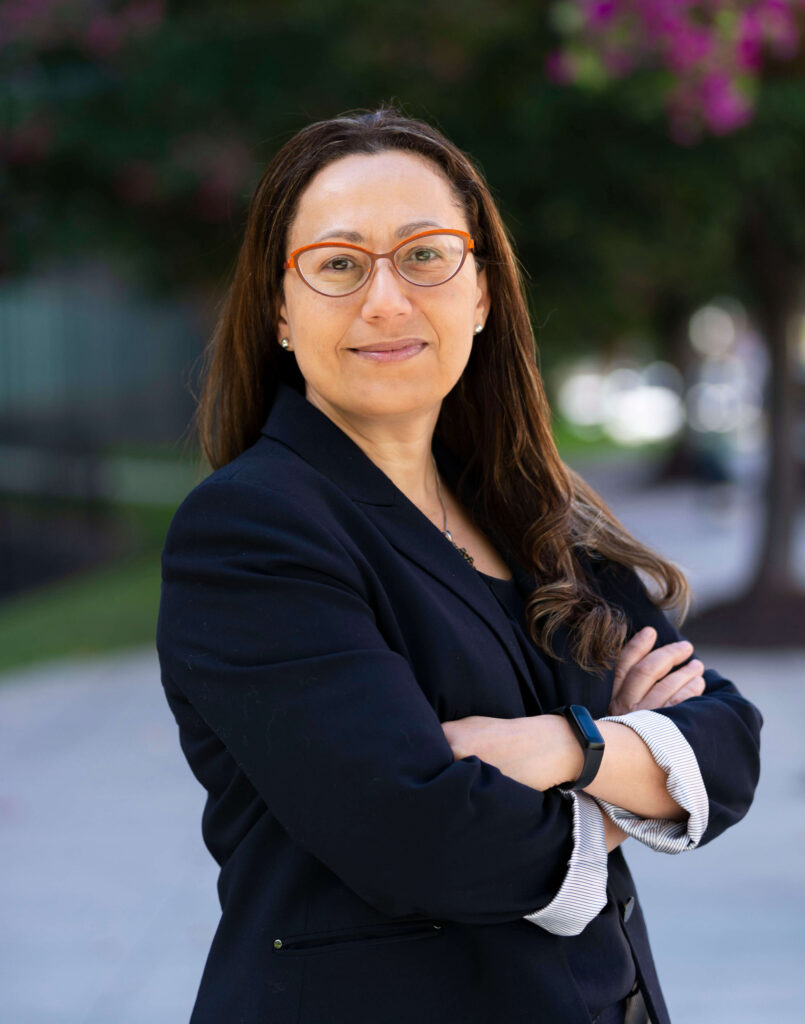
Just over one year ago, I joined the Center for Financial Inclusion (CFI), and what a year it has been. Financial Inclusion Week presents a great time for me to reflect on this past year and to share with you CFI’s plans for our next chapter. We are using Financial Inclusion Week to feature the work of so many of our partners. And we are also using the week to focus attention on the themes we have identified in our new strategy as the pillars for this week’s calendar of events.
CFI emerged from the rubble of the financial crisis to spearhead the most pressing issue the inclusive finance field needed at the time: improved consumer protection. We are now well into our second decade and our industry is reeling from the ravages of the COVID-19 pandemic. It is perhaps the right time for CFI to reenergize its mandate and spearhead what we believe is needed to “build back better” as the saying goes. As tragic as the pandemic’s consequences have been and continue to be, it has at least laid undeniably bare the failures of the status quo and has created a heightened sense of urgency, for financial services to build back better.
CFI was founded at a particular moment when it was becoming more apparent that market forces alone would not ensure positive outcomes for financial inclusion, and that sustained intentionality would be necessary. The coronavirus pandemic has, at the September 2020 time of writing, infected more than 33 million people and killed nearly 1 million. Beyond the rapid and catastrophic spread of illness and death, the pandemic has devastated global economies. Millions of micro, small, and medium enterprises (MSMEs) around the world have seen revenues plummet and have suspended operations or gone out of business altogether. Hundreds of millions of families have lost jobs and incomes, and many of them live in countries where social safety-net protections are patchy at best. The pandemic also reversed, seemingly overnight, social and economic development gains that had taken decades to achieve: the World Bank estimates that 70 million people are at risk of falling back into poverty. Women and children have been among those most affected: children because schools around the world have been shuttered, and women because they are more likely than men to lose their jobs and to shoulder the responsibility of supervising and homeschooling children.
For CFI, the pandemic has reenergized our purpose. Financial services are critical to reducing low-income populations’ vulnerability and helping them to recover from this and other recurring crises in their lives. We believe we have a leadership role to play in this intensified global effort. We have more than a decade of recognized global leadership in understanding the financial needs and behaviors of low-income vulnerable populations. Complementing this demand-side expertise, our recent integration with MIX brings supply-side expertise to the table, as they have been studying and reporting about financial service providers for the past 20 years. These complementary strengths, combined with our history of thought leadership and our role as conveners, positions CFI to pursue an ambitious three-year strategy made all the more urgent in the context of the pandemic.
The pandemic has reenergized our purpose.
The strategic plan which will guide CFI’s work through 2024 focuses on four thematic areas. All of them, to significant degrees, have either been exacerbated by the pandemic or have been revealed by this crisis as urgent and under-attended priorities. The common thread among the themes is that progress in these areas is essential to ensuring that all people have the financial tools needed to improve their lives and to prosper.
Financial Services to Respond to the Risks of Climate Change
Just as the pandemic’s effects have been most severe on those who were already the most vulnerable, so too are the effects of climate change. Low- and moderate-income countries (LMICs) in the Global South are likely to experience longer, hotter heat waves and more extreme storms which in turn will create income loss, food insecurity, adverse health effects, and displacement that will hit already-vulnerable LMIC populations hardest.
Financial services are an indispensable tool to help prepare for climate-related shocks and recover.
CFI recognizes that climate change is ultimately an issue requiring long-term systemic changes to entrenched patterns of production and consumption. In the short term, however, financial services are an indispensable tool to help low-income vulnerable people prepare for climate-related shocks and recover from them when they happen. Our work in this theme will focus on understanding what those people need and the constraints they face, uncovering product innovations that can help, and then pilot testing such innovations and scaling-up lessons learned.
Women’s Financial Inclusion
Around the world, in many different geographies and socioeconomic contexts, women occupy a “last in, first out” position of vulnerability. The fall-out from the pandemic has made this abundantly clear. Whether it is a workplace where the more recently hired woman is let go before the more senior man, or a financial system that only prioritizes women’s needs when times are good, women’s economic inclusion is seen as a nice-to-have rather than a must-have. Women’s financial inclusion is powerfully shaped by broader societal norms, the unspoken assumptions and values governing men’s and women’s roles. CFI believes that efforts that focus solely on process fixes or product design will not succeed in women’s financial inclusion unless those efforts also seek to transform, rather than merely acknowledge, the underlying norms.
Our work in this area will accordingly include an intensive focus on research into successful norms-transformative initiatives, and how those might be scaled up. We will also work to improve the digital and financial capability of subsegments of women customers, and to influence the policy environment for women’s financial inclusion.
Data Risks and Opportunities
The pace of change created by the technology revolution is much faster than law, policy, or social mores can match. Although data privacy and protection regimes have begun to emerge, especially in wealthy countries, data by its nature is universal. To date, there is no universal framework setting forth who even owns personal data, much less governing how it can be used, by whom, and under which circumstances. The COVID-19 pandemic has provided a powerful illustration of both the risks and the opportunities of digitized data. The public health benefits of documenting and following diagnosed COVID-19 cases, and of tracing patients’ contacts, are obvious. But the risks to patients of stigmatizing, discrimination (whether of access to insurance, housing, employment, or otherwise), and other abuses are also very real.
Similarly, in financial services, data is the key that can unlock access to a full range of personalized, effective products that can help low-income people achieve their goals. The risk is that many LMICs have no effective consumer data protection regimes in place and that even where those exist, people with low levels of digital and financial sophistication may, in their eagerness to receive financial services, sign away their rights without even fully understanding them.
CFI will focus on means to bring transparency to data practices in DFS.
CFI’s work in this area will focus on means to bring transparency to the data practices of digital financial service (DFS) providers. We will also study how financial service providers use algorithms, which can be biased against already-underserved populations, in automated decision-making. We will monitor emerging frameworks around the world to document what does and does not work to advance financial inclusion while safeguarding data privacy, portability, and other consumer rights.
Consumer Protection in the Digital Economy
As the inclusive finance landscape evolves, so too must the approaches to consumer protection. Social platforms, ecommerce giants, fintechs, and pay-as-you-go providers are all relatively recent entrants into the field, and this means a multi-pronged approach is necessary to ensure safe practices are the norm. This is especially true since many of these business models fall beyond the scope of existing banking regulation. Consumer protection is an evergreen challenge, and one where CFI has long been active.
Consumer protection is an evergreen challenge.
We plan to devote intensive study to the practice of government-to-person (G2P) digital cash transfers, since these are often the on-ramp to digital financial services for low-income populations. We want to understand the risks that digitized G2P transfers present and how governments are mitigating those risks. We also want to document innovations around redress of grievances, financial capability-building add-on services, resolution of connectivity issues, and other relevant lessons learned.
In addition, CFI will partner with regulators and supervisors to test new technologies, such as chatbots or algorithmic audit tools, that can allow supervisors to be in direct dialogue with consumers, without consumer voices being mediated via the financial service providers. Such a dialogue can ultimately improve customers’ experience with financial services and democratize the financial sector by involving customers in the development of financial sector policies. To date, much of the recent work in regulatory technology (RegTech) and supervisory technology (SupTech) has prioritized the data reporting and compliance, but CFI believes its potential for advancing consumer protection has been underappreciated.
Conclusion
CFI developed its three-year strategic plan by weighing the needs of the inclusive finance industry against what we see as our own comparative advantages. We recognize that the four thematic priorities we intend to pursue are not an exhaustive list of everything that needs to happen to ensure positive outcomes for low-income people, and we also recognize that other individuals and organizations are doing excellent work in the areas we intend to pursue. We look forward to collaborating with all stakeholders who share the vision of a world where all people are able to equitably participate in the economy and are able to use financial tools to improve their lives and to prosper.
We hope you will participate in the rest of Financial Inclusion Week, which is packed with amazing speakers, events and activities. And, we want to hear from you. Please participate and tell us what you think about CFI’s thematic priorities.










